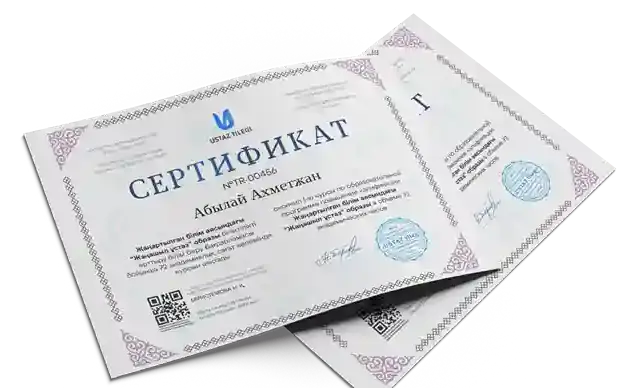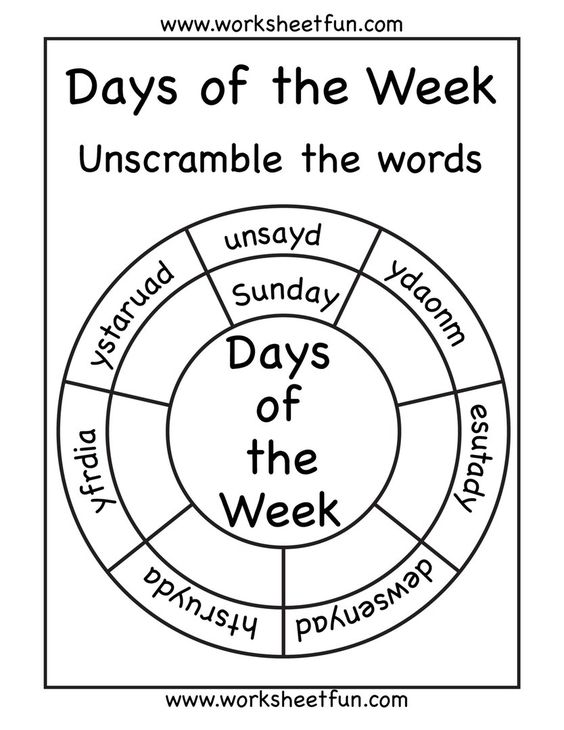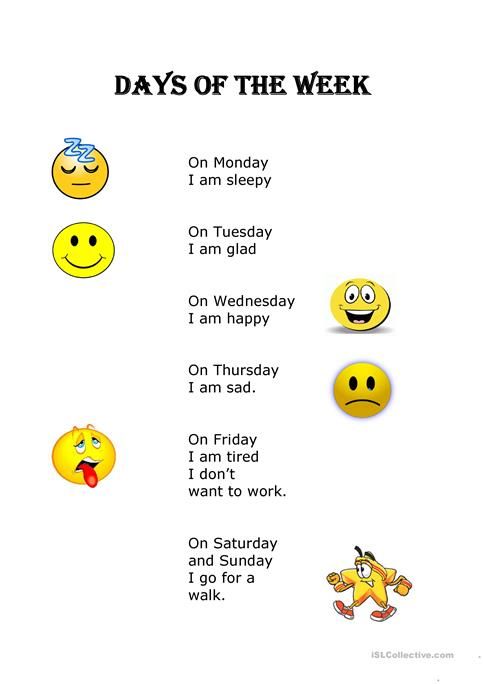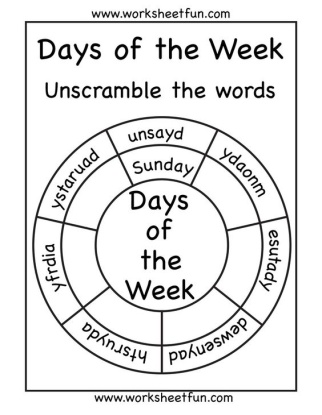Назар аударыңыз. Бұл материалды сайт қолданушысы жариялаған. Егер материал сіздің авторлық құқығыңызды бұзса, осында жазыңыз. Біз ең жылдам уақытта материалды сайттан өшіреміз
Жақын арада сайт әкімшілігі сізбен хабарласады

Бонусты жинап картаңызға (kaspi Gold, Halyk bank) шығарып аласыз


мтбющждн аггдбль пеопьпльи
Дипломдар мен сертификаттарды алып үлгеріңіз!


Материалдың толық нұсқасын
жүктеп алып көруге болады
|
Lesson Plan |
|||||||
|
LESSON: Unit Time The theme: Days of the week |
School: 55 |
||||||
|
Date: |
Teacher name: Adkhamova M. |
||||||
|
CLASS: 3 |
Number present: |
absent: |
|||||
|
Learning objectives(s) that this lesson is contributing to |
3.2.2.1. Ask questions to find out about present experiences on a limited range of general and some curricular topics 3.3.1.1. Recognise, identify and sound with support a limited range of familiar words in simple sentences. 3.4.4.1. Write with support short basic sentences with appropriate spaces between words |
||||||
|
Lesson objectives |
All learners will be able to: Ask |
||||||
|
|||||||
|
Most learners will be able to: |
|||||||
|
|||||||
|
Some learners will be able to:
|
|||||||
|
|||||||
|
Assessment criteria |
|
||||||
|
Value links |
Values of the national idea “Mangilik Yel”- A secular society with hight spirituality |
||||||
|
Cross curricular links |
Kazakh |
||||||
|
Previous learning |
Cardinal and ordinal numbers |
||||||
|
Plan |
|||||||
|
Planned timings |
Planned activities |
Resources |
|||||
|
Beginning 3 min.
5 min
5 min |
1Greetings. Good morning children! -What’s the date today? -What’s the weather like today?
Ex: The first is Sunday, the second is Monday..... Watching a video “ days of the week” Learners watch a video and guess about the theme of the lesson “days of the week” Teacher introduces the learners with the names of the week using slides and worksheets. Learners pronounce the words correctly according to the video. Teacher asks 3 questions to learners: -Is it Sunday today? - No, it isn’t -Is it Friday today” - No, it isn’t What day is it today? - It is Wednesday. Warm-up. Learners repeat after their teacher, showing the actions about the poem and using mimics.
|
Cards with numbers and days of the week.
Video about days of the week |
|||||
|
Middle 5 min
10 min
10 min |
Group work Task 1. Method “ Get the question” Teacher asks learners find their pair and ask/ answer each other questions about days of the week. Ex: 1. What day is it today? Today is Monday. 2. What day will be tomorrow? -Tomorrow will be……. 3. On which days have you got your English lessons? -…….. 4. On which days haven’t you got lessons? ……. 5. What’s your favourite day? …….. 6. What day is your birthday this year?......... Descriptor: a learner:
Differentiation: -all learners name the days of the week -most learners – give only 3 full answers with no mistakes -some learners - give 6 full answers making grammatically correct sentences Assessment: For each grammatically correct question and answer the learner gets a smile . Task 2 .“Describe the picture” Learners look at the pictures and write sentences. Learners write the sentences and read . Ex: On Sunday Mary goes swimming.
Descriptor: a learner - writes the Days of the week, - makes up sentences according to the picture as in example;
Differentiation -all learners: guess and name the day of the week -most learners: name the day of the week using the picture and write it in the sentence -some learners: name the day of the week using the picture, write it and translate the sentences. Assessment: one expert from every group gets answers and they change the groups clockwise. Every expert checks the answers of his group and assesses the learners according to assessment criteria. No mistakes - “Perfect job” 1- 2 mistakes- “ Good job” 3-7 mistakes “ Try again”
Individual work. Task 3 Reading. Method “Find the answer” Teacher gives worksheets with the text and questions. Learners read the text in groups and find the answer to the questions. There are 4 questions for every group. Then groups change their answers and check each other with correct answers on the slide. My favourite day is Sunday. I get up at ten o’clock in the morning and I have a breakfast. Then I go to the park with Nanny and Liam. I ride my bike and Liam plays football with his friends. At one o’clock, we all have lunch together. In the afternoon, I watch TV with Charlie or listen to music. I love Sundays! By Lilly Questions:
Descriptor: a learner
Differentiation: All learners: Read the text Most learners: Read and translate familiar word in the text and try to find the answers, Some learners: read, translate and find the correct answers to all the questions Assessment: For every correct answer the group gets a point. 4 points – “ Excellent” 3 points – “Good job” 2-1 points “ Try again” |
Smiles
picture
Worksheets with the text A slide with answers
|
|||||
|
End 2 min
|
Feedback
Green- Everything in this lesson is clear for me. Yellow- I have got some question Red – I don’t understand anything
Home work: unscramble the words correctly and learn by heart
|
|
|||||
|
Additional information |
|||||||
|
Differentiation – how do you plan to give more support? How do you plan to challenge the more able learners? |
Assessment – how are you planning to check learners’ learning? |
Health and safety
check
|
|||||
|
Teacher gives more support using visual aids (video about days of the week, pictures), using mimics. In the middle while using the days of the week teacher can help less able learners by telling them the first letter of the word. In task 1 all learners name the days of the week correctly. Most learners can ask 3 questions and give only 3 full answers with no mistakes. Some learners can ask more than 6 questions and give full answers making grammatically correct sentences. In task 2 all learners guess and name the day of the week. Most learners name the day of the week using the picture and write it in the sentence. Some learners name the day of the week using the picture, write it and translate the sentences. In task 3 All learners: Read the text Most learners: Read and translate familiar word in the text and try to find the answers, Some learners: read, translate and find the correct answers to all the questions Challenge: Gifted learners help weaker learners. |
Monitor learners’ knowledge of new vocabulary and ability of telling present experiences using days of the week. Sharing ideas in groups. In task 1 for each grammatically correct question and answer the learner gets a smile . In task 2 one expert from every group gets answers and they change the groups clockwise. Every expert check the answers of his group and assesses the learners according to assessment criteria. In task 3 For every correct answer the group gets a point. 4 points – “ Excellent” 3 points – “Good job” 2-1 points “ Try again”
Feedback “Traffic light” at the end of the lesson helps to see learner’s achievement and make plans for the future. |
Working in groups pupils keep the safety rules and respect each other’s opinion. |
|||||
|
Reflection Were the lesson objectives/learning objectives realistic? What did the learners learn today? What was the learning atmosphere like? Did my planned differentiation work well? Did I stick to timings? What changes did I make from my plan and why? |
Use the space below to reflect on your lesson. Answer the most relevant questions from the box on the left about your lesson. |
||||||
|
|
|||||||
|
Summary evaluation What two things went really well (consider both teaching and learning)? 1: 2: What two things would have improved the lesson (consider both teaching and learning)? 1: 2: What have I learned from this lesson about the class or individuals that will inform my next lesson?
|
|||||||







